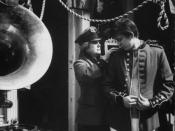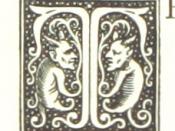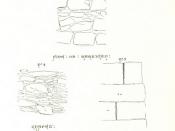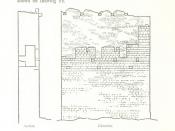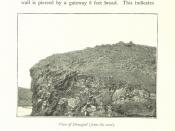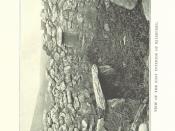In life, all things have consequences, and to every action is a reaction. The 1960s was a time with pop, fantasy, and choice, but was also a time of violence and self destruction. I chose to do my response on the Robert Hewison's quote on the sixties. He refers to the many changes in the sixties both good and bad. He saw it as time of prosperity, individualism, and creativity. People were given light and new possibilities. One example, the Art Council was created and there was a new industry for the fine arts. London became a place that encouraged fine arts, music, and fresh ideas. But Hewison also saw this time as indulgent, defiant, and selfish. This was a time of the Vietnam War, sex, and drugs.
"â¦Pop was affirmative and celebratory, the long front of culture offered the possibility of greater choice for a wider range of people.
But it was also a fantasy, since it was based on the illusion of unending economic expansion." The youth were motivated more to do what their hearts told them and less duty and authority. People were optimistic and believed that they would have plenty and prosper. Alcohol, drugs, and sex were ways to live life to the fullest. "The counter-culture released a great deal of potentialâ¦." People were given new choices. The world put a man on the moon, Watson and Crick discovered DNA, and birth control went out on the market. London was bringing all new kinds of talent from the Beatles to Richard Hamilton. Between 1964 and 1971, the Art Council of Great Britain annual grant grew from ã3.2 million to ã9.3 million. These talents were being appreciated like never before. "We're more popular than Jesus now" 4 March 1966. John Lennon 1940-80 (Britannia). The historian, Green, agreed that culture of the sixties was a happening place with more choice and freedoms than ever before. But he also believed that any age compared to the sixties was just a disappointment, which is contrary to what Hewison was saying.
Hewison also said there were the "⦠monsters of violence and self-destructionâ¦" and along with the drugs, sex, and new ideas came consequences. In 1960, the Vietnam War started and so did the issues of whether to be in war. New ideas separated families, traditions, and also separated the world. In 1963, John F Kennedy was assassinated. When people spread ideas strongly, there are also people who will disagree strongly. People wanted their own believes and thoughts to be heard. People chose to do drugs and alcohol instead of working or caring for their families. Individualism which at one time seemed like a great new freedom also had harmful consequences. One sign of the decay of the sixties started in 1970 with the drug overdose of Jimi Hendrix.
"The combination of economic recession and cultural reaction has, in the place of change, substituted decay." The time Robert Hewison made this quote was during the 1980s when the UK was seeing unemployment and deindustrialization. People were getting cancer from side effects of drugs and alcohol. AIDS and HIV were discovered in 1981. The economic prelude to Black Wednesday was occurring. There was a lack of an impact in comparison to the Beatles and Robert Hamilton. The world at this point almost did seem to go downhill in accordance with the sixties. But Robert Hewison also said "If the only new thing we have to offer is an improved version of the past, then today can only be inferior to yesterday. Hypnotized by images of the past, we risk losing all capacity for creative change." He saw the sixties as a great time in history, but he knew that it gets better.
In conclusion, Hewison believed that the sixties were a time of new freedoms and creativity, but also a time that damaged and caused consequences for years to come. Hewison made this quote in the eighties when the reaction of the sixties was an appreciation of art and music, but also an economic recession. Green disagreed and believed the sixties should not be held accountable, but looked up to and that we are just now falling short. Sandbrook, the historian, believed that throughout every age we are the same people and country, and that time carries no significance. Overall, Hewison seems to make the most sense with the historical background of the sixties and his quote makes a happy medium between most believes.
Bibliography: L. Jones, Modern Times In London, http://www.britannia.com/history/londonhistory/modlon.htmlD. Sandbrook, White Heat: A History of Britain in the Swinging Sixties, (London: Little, Brown, 2006), pp. 748-9J. Green, All Dressed Up: The sixties and the counterculture, (London: Pimlico, 1998)R. Hewison, Too much: art and society in the Sixties, 1960-75 (London: Methuen, 1986)R. Hewison, Culture and Consensus, (London: Methuen, 1995)
